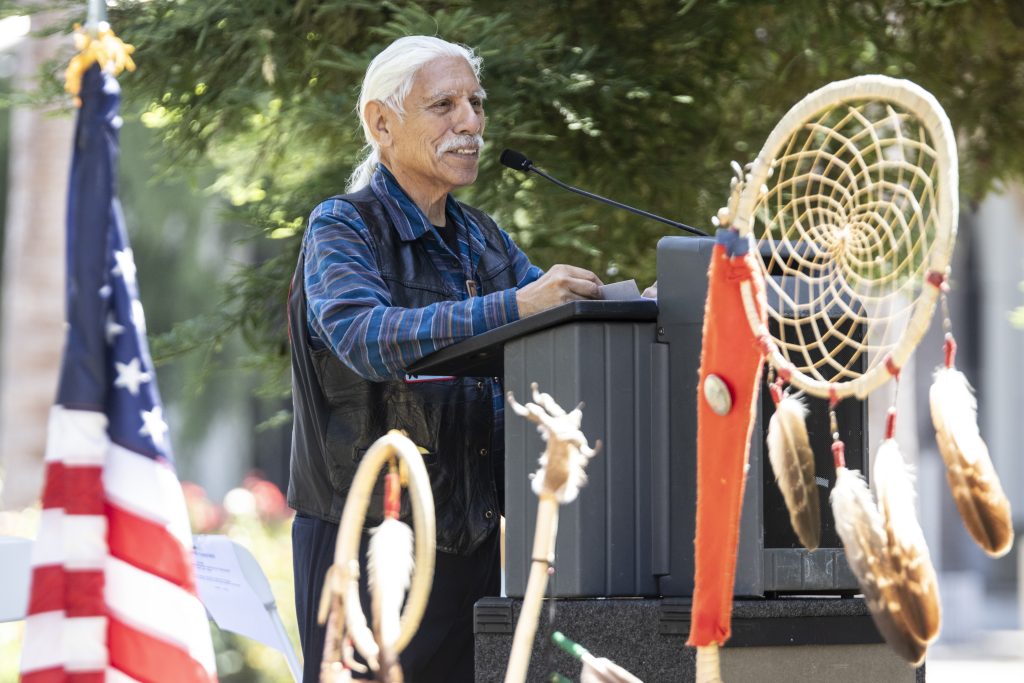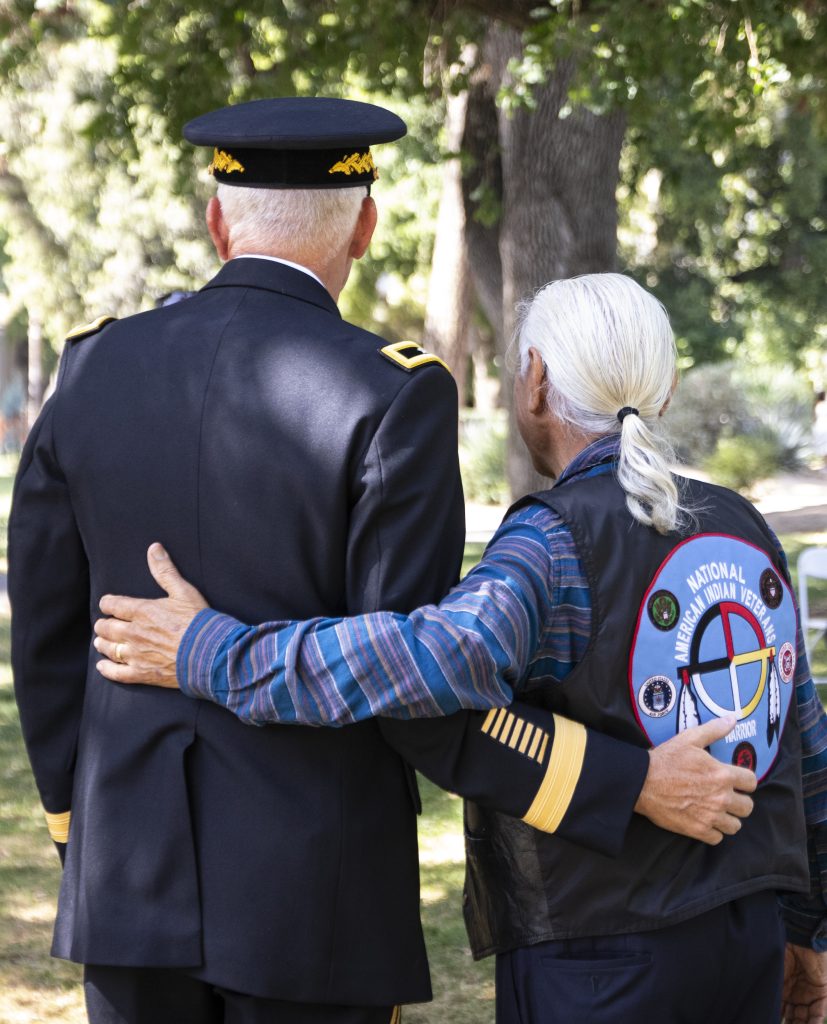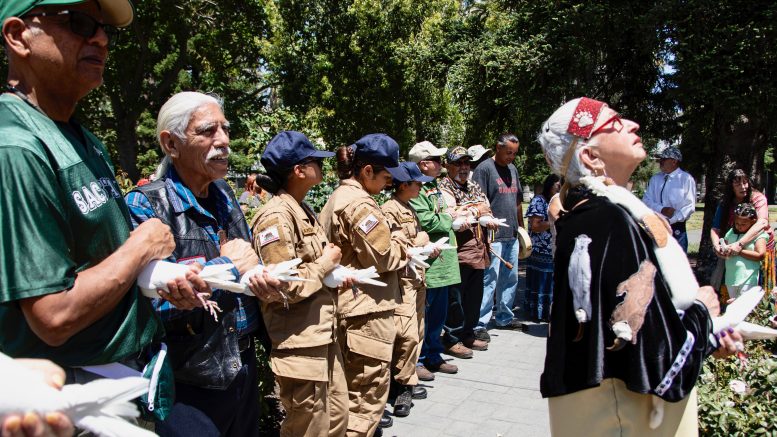By Ellie Appleby
October 14 marks this year’s Indigenous People’s Day in the United States, but for 80-year-old Frank Ramirez, this is his focus on most days.
Ramirez, of Sacramento, was a major contributor to the passage of a federal congressional charter under the Fiscal Year 2024 National Defense Authorization Act that allows National American Indian Veterans, a national nonprofit, nonpartisan veterans service organization, to testify about veteran issues before Congress.
“Our people fought for the United States in the past and we still serve today,” Ramirez said. “To have a congressional charter is a dream come true.”
This charter allows accreditation for National American Indian Veterans (NAIV) and gives them the same prestige, recognition and status as other veteran organizations by the U.S. Department of Veteran Affairs.
“If there are any issues with veteran housing, employment, training, health care — you name it — we now have the ability to go to any hearing at the federal level,” Ramirez said. “In the past you had to get approval, and if they had said no, you wouldn’t have been able to attend.”
Founded in 2004, NAIV was created to address the needs of American Indians, Alaska Native, Native Hawaiian and Samoan veterans who have served in all branches of the U.S. armed forces. NAIV serves all 50 states. According to the American Indian Council on Aging, more than 24,000 active-duty service members are American Indian, and there are roughly 140,000 American Indian and Alaska Native veterans living in the United States.
Ramirez — a member of the Lipan Apache Tribe of Texas — is a Vietnam veteran and the national director of the Governmental Affairs Office of NAIV.

Ramirez had a humble beginning, born at a dairy farm in Niles Canyon in the Bay Area. He credits his mother for giving him the knowledge to look to politics for answers. Even before Ramirez knew the roots of his heritage, he had been working to help Indigenous people.
“I have a passion for helping people that are disowned by the general public, I try to get them resources and get them into the civil society of this country,” Ramirez said.
On June 1, Ramirez spearheaded the Centennial Anniversary of the Indian Citizenship Act at the California State Capitol World Peace Rose Garden. This federal legislation from 1924 declares that Indigenous people born in this country are U.S. citizens.
Tribal leaders and elders along with military veterans gathered together to celebrate the passage of the congressional charter and to celebrate 100 years of Native Americans being recognized as citizens and granted the right to vote.

“This ceremony was to honor our elders that stood up to help pass these laws and to bring awareness to natives that might not know,” said Ronald Six Bears Alec Sr., who attended the event.
For Ramirez, his work is ongoing, and he still advocates for peace and harmony. “Our democracy is about shared responsibilities, about [sharing] work equally together in a meaningful way so that we can appreciate our lives and the lives around us,” he said.
This story is part of the Solving Sacramento journalism collaborative. Solving Sacramento is supported by funding from the James Irvine Foundation and the James B. McClatchy Foundation. Our partners include California Groundbreakers, Capital Public Radio, Outword, Russian America Media, Sacramento Business Journal, Sacramento News & Review, Sacramento Observer and Univision 19. Sign up for our monthly newsletter.


Nice Article!